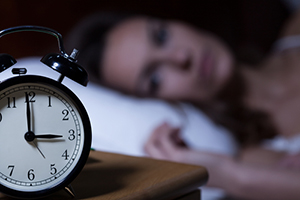 In the 21st-century, it has almost become a badge of honor to say that you sleep very little. We have come to admire people who party or work throughout the night.
In the 21st-century, it has almost become a badge of honor to say that you sleep very little. We have come to admire people who party or work throughout the night.
At the same time, we’re obsessed about youthfulness and looking young.
Unfortunately, the two issues do not always go hand in hand, if ever.
A recent study shows that sleepless nights, whether intentional or insomnia-driven, have some terrible health consequences that are far from admirable or honorable. And it happens on cellular level.
In a recent edition of the journal Biological Psychiatry, Prof Judith E. Carroll from the University of California at Los Angeles and a few colleagues published a study proving insomnia could speed up your biological clock, thereby making you develop age-related illnesses earlier – and even die earlier.
They started from the well-established fact that people who suffer from insomnia are at higher risk of age-related diseases (like coronary artery disease) and tend to die earlier.
This made them wonder whether insomniacs actually age faster than good sleepers.
They analyzed information from 2,078 women collected previously by the Women’s Health Initiative study.
For a measure of insomnia, they used restlessness, difficulty falling asleep, waking during the night, difficulty falling asleep after waking, early awakenings, short sleep (five hours or less), and long sleep (more than eight hours).
Insomniacs will recognize most of these, except for the luxury of long sleep, as a regular part of their existence.
For biological age, they used measures called epigenetic age, naïve T cell (CD8+CD45RA+CCR7+), and late differentiated T cells (CD8+CD28-CD45RA-). Completely incomprehensible, of course, but they are simply measures that academics often use to trace DNA changes that affect which genes are activated. They display your age at cellular level.
They concluded that postmenopausal women with at least five insomnia symptoms were biologically about two years older than women of the same chronological age.

 Multiple Sclerosis
Multiple Sclerosis Banishing Bronchitis
Banishing Bronchitis Gum Disease Gone
Gum Disease Gone Overcoming Onychomycosis
Overcoming Onychomycosis Neuropathy No More
Neuropathy No More The Prostate Protocol
The Prostate Protocol Brain Booster
Brain Booster
 Ironbound
Ironbound
 Solution for Shingles
Solution for Shingles
 The Bone Density Solution
The Bone Density Solution
 The Ultimate Healing Protocol
The Ultimate Healing Protocol
 The Parkinson's Protocol
The Parkinson's Protocol
 The Chronic Kidney Disease Solution
The Chronic Kidney Disease Solution
 Overthrowing Anxiety
Overthrowing Anxiety The Fatty Liver Solution
The Fatty Liver Solution The Hypothyroidism Solution
The Hypothyroidism Solution
 The End of Gout
The End of Gout The Blood Pressure Program
The Blood Pressure Program
 The Oxigized Cholesterol Strategy
The Oxigized Cholesterol Strategy
 Stop Snoring And Sleep Apnea Program
Stop Snoring And Sleep Apnea Program
 The Arthritis Strategy
The Arthritis Strategy The Vertigo & Dizziness Program
The Vertigo & Dizziness Program The 3-Step Diabetes Strategy
The 3-Step Diabetes Strategy Hemorrhoids Healing Protocol
Hemorrhoids Healing Protocol The Erectile Dysfunction Master
The Erectile Dysfunction Master Weight Loss Breeze
Weight Loss Breeze The IBS Program
The IBS Program The Insomnia Program
The Insomnia Program The Migraine and Headache Program
The Migraine and Headache Program The Neck Pain Solution
The Neck Pain Solution The Menopause Solution
The Menopause Solution The Ejaculation Master
The Ejaculation Master The TMJ Solution
The TMJ Solution The Acid Reflux Solution
The Acid Reflux Solution The Fibromyalgia Solution
The Fibromyalgia Solution The Psoriasis Strategy
The Psoriasis Strategy